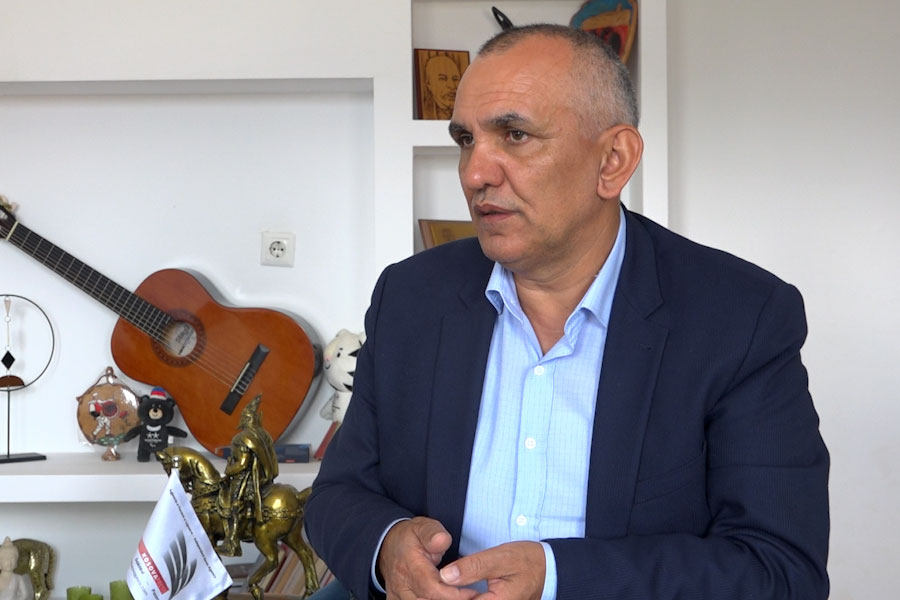
The private sector as a generator of economic development and a contributor to filling the state budget is in a serious condition, and the distribution of financial resources through different packages is seen as wrong by the business community.
Business associations also criticize the government that in this time of financial crisis, the executive has cut off communication and the government-business dialogue.
The Chamber of Trade and Industry Kosovo and is asking for a special support package for workers and businesses.
In addition to the energy crisis, the president of the Chamber of Trade and Industry Kosovo, Skënder Krasniqi, says that the situation for the private sector remains difficult with the decline in production, sales of products and the lack of workers. Another challenge for the head of this chamber is the workers' demand for salary increases.
"This difficulty increased especially after the beginning of the pandemic and escalated after the war in Ukraine. With the beginning of the Russian invasion of Ukraine, everything has changed, it's even worse than before, and this has brought the business to an extraordinary, very difficult state. The situation remains aggravated now with the lack of workers, with the workers' demand for salary increases, with the increase in prices in the market, with the decline in the sale of products, and with the impossibility of facing the global market. For this crisis, other countries have intervened much more than our country", he says.
Krasniqi says that from the time of the pandemic until now, not even 80 percent of the demands have been fulfilled by the current and past governments.
"At the beginning of the pandemic, we asked the governments to take measures for support, the requests were either for tax reductions, financing low-interest loans, for the reduction of VAT from 18 percent to 5 percent, and for essential products, we have requested that the VAT be zero for 3 to 6 months. Also, we have requested the removal of the oil excise, as well as many other requests, such as legal infrastructure, where we have requested that the law be changed and that purchases be made several days a week without VAT in order to increase production and sales. However, not even 80 percent of these demands have been fulfilled", he emphasizes.
Krasniqi says that the state's support for businesses and workers so far is very low.
Regarding the latest package for dealing with inflation, which also foresees the distribution of funds indirectly for private sector workers, Krasniqi says that it is a conditional and unfair support.
With the measure of this package, the subsidy of 50 percent of the salary increase up to 100 euros for private sector workers is provided for the first 3 months.
Krasniqi demands that the conditionality be removed and financial resources be allocated to private sector workers as well as to those in public administration.
"The amount of 100 euros is not defined whether it will be monthly or general for these three months. It should not be done in the form of conditioning for businesses, because the business raises wages as much as it can and is continuously raising wages. We, as a Chamber of Trade, have requested that the business not be conditioned, but that they be allocated as they are being given to other workers, the public sector, where they are allocated 50 euros for four months or 200 euros. As for the employees of public companies from 100 euros, while those who support the state with direct taxes from private sector workers who are the majority, as well as businesses that create 80 percent of the state's income, are conditioned with a 50/50 increase from the of business. This conditioning is unfair and harmful, as well as short-term. Therefore, in this way, businesses are not being helped, but they are still giving a blow to businesses with mandatory growth… This condition should be removed, but the means should be allocated as they are being given to the public sector, the means should also be allocated to the workers of the private sector ", says Krasniqi.
"Yes, we have asked first that the workers have health insurance, safety at work - for workers to be taken care of if they become unemployed. To create a family basket, to protect families and workers with low incomes. This is the responsibility of the state. The state is not fulfilling its duties, meanwhile it is delegating all the burden to business. Thus, the obligation to pay pregnant women 70 percent of the salary for 6 months is removed. This is the responsibility of the state, because there is no country in the Balkans or in Europe that conditions the business… This salary must be covered by the state like in any other country… The obligation is unconstitutional and not legal", he says.
As for the energy crisis where power outages are expected during the coming winter, Krasniqi has said that these outages lead businesses to bankruptcy and the terminating thousands of jobs.
Krasniqi is seeking official data from the government and the distributor KEDS for the preparations for the electricity supply during the winter.
While as for the large financial losses of businesses from the harsh power outages in August, Krasniqi emphasizes that the companies did not receive support.
The head of the Chamber of Trade and Industry Kosovo, Krasniqi, said that the Government is delaying the process of the draft law on public works, which provides for inflation compensation for construction materials and follow-up works for existing contracts.

